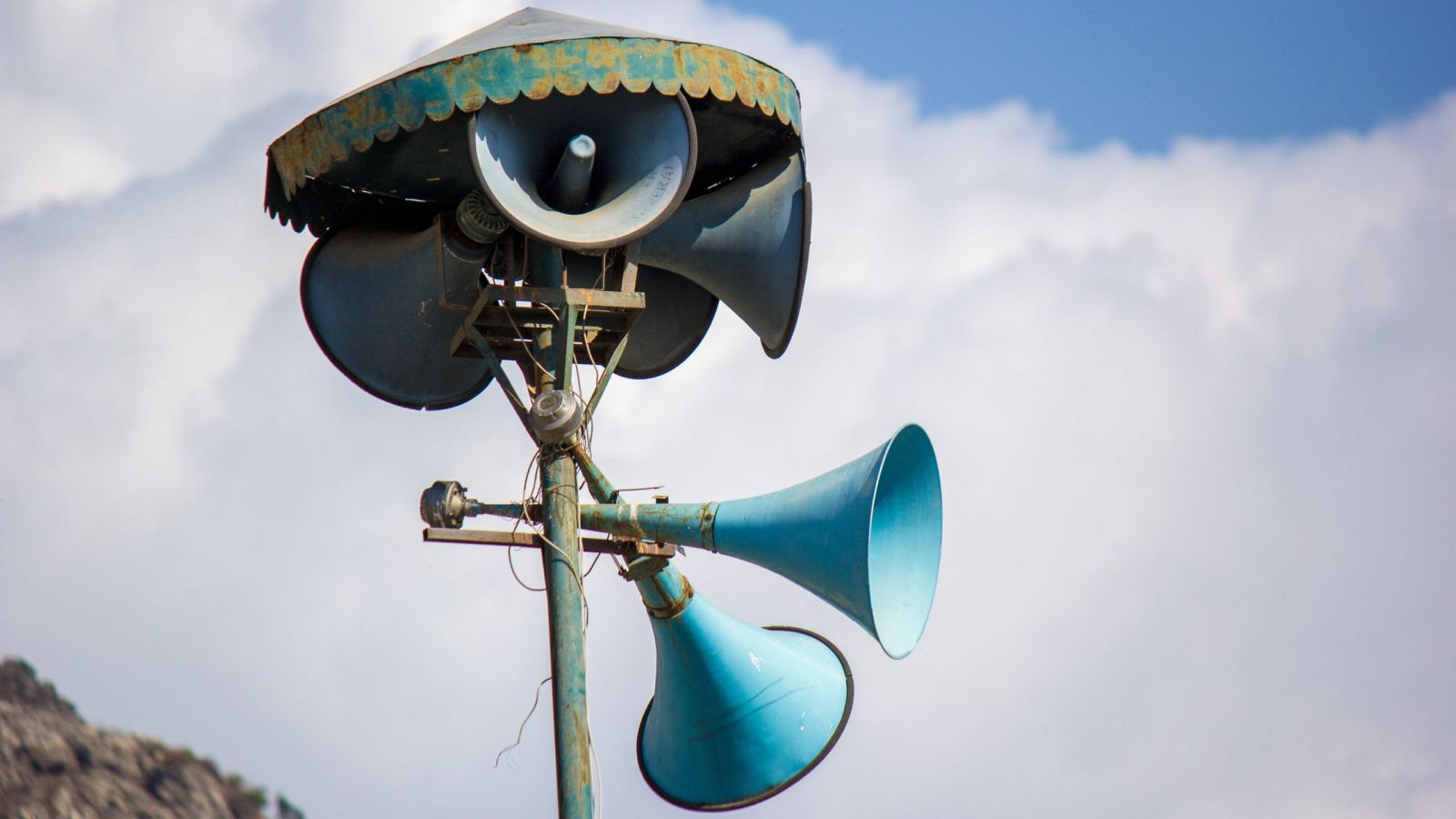The Methodology of Calling the Adhān
Imām Muḥammad ibn Ṣāliḥ al-ʿUthaymīn


Maintaining a State of Purity
The muʾadhin should be in a state of purity when performing the call. That is, pure from both major and minor forms of impurity for such is the sunnah. However, the jurists (رحمهم الله) say: It is disliked for a person in a state of major impurity to perform the adhān, but it is not disliked for a person in a state of minor impurity to call it. This will be the case as long as the minaret from which the adhān is called is not within the confines of the masjid. If the minaret is within the confines of the masjid, it is considered ḥarām upon the one in a state of janābah to remain in the masjid except after performing wuḍūʾ.1 Considering this, there are three circumstances:
- The caller is pure from both major and minor forms of impurity. This is the best and most ideal.
- The caller is in a state of minor impurity. This is permissible.
- The caller is in a state of major impurity. This is considered disliked.
Facing the Qiblah
It is a recommended sunnah for the caller to face the qiblah when performing the call as this has been narrated.2 Also, because calling the adhān is a form of worship. As such, the best manner of performing acts of worship is facing the qiblah except if explicitly stated otherwise. As the composer of ‘al-Furūʿ’ said when expounding upon the saying of the jurists (رحمهم الله): “It is recommended for one to perform wuḍūʾ while facing the qiblah”, he comments: “just as it is most appropriate [to face the qiblah] in every obedient act except when there is evidence to the contrary.” However, this point may be debated, as the claim that it is recommended for all obedient acts except if proven otherwise itself requires evidence.
Inserting One’s Index Fingers Into One’s Ears
The muʾadhin should insert his index fingers into his ears. The evidence of this is the ḥadīth of Abū Maḥdhūrah.3 This has two benefits:
- This facilitates a stronger sound.
- Those who are far away, or those unable to hear his voice may see him and immediately know that he is calling the adhān.
The first benefit is still applicable even in the present day. While the second may be present or absent currently.
Circling the Minaret
The muʾadhin does not have to circle the minaret while he is calling the adhān. This clarification is pertinent seeing that the opinion held by some jurists that if the minaret has a round balcony or alcove around it, the muaʾadhin should circle around it while calling the adhān such that people in all directions may hear him. This opinion is negated by the composer [al-Ḥajjawī].
Turning While Reciting the Ḥayʿalatān (Come to Prayer, Come to Success)
The muʾadhin should turn while reciting the ḥayʿalatān [حي على الصلاة, حي على الفلاح]. As for the method of this turning, some say the muʾadhin should turn right twice when saying حي على الصلاة each time, and turn left twice when saying حي على الفلاح. Others hold the opinion that he should turn right when saying حي على الصلاة the first time, then turn left when saying it the second time. Similarly, he should turn right when saying حي على الفلاح the first time and turn left when repeating it the second time. The reasoning for this is to give each side its due of both حي على الصلاة and حي على الفلاح.
However, the most famous narration found in the sunnah is that the muʾadhin should only turn right both times when saying حي على الصلاة and only turn left both times when saying حي على الفلاح making a separate turn for each individual sentence.
As for the action of some of the muʾadhins of today wherein they say حي على facing the qiblah then turn, this is a baseless act. Similarly, some imams when saying the taslīm at the end of the ṣalāh will say: السلام عليكم then turn and while they are turned they will then say ورحمة الله. Both actions are completely baseless.
Note: The wisdom behind turning right and left is to deliver the call to those stationed on the right and the left of the muʾadhin. Considering this, the one who is calling the adhān into a speaker system should not turn during his call. This is because the sound of the adhān is delivered to the people through the speakers present in the minaret itself. If he was to turn, this would cause the sound to be weakened as he has distanced himself from the receiver.
Endnotes:
[1] Shaykh Ibn ʿUthaymīn said: “If the person in a state of major impurity [janābah] performs wuḍūʾ, it is permissible for him to remain in the masjid. If he then nullifies his wuḍūʾ, can he still remain within the masjid? The answer is yes as his janābah is lessened by his performance of wuḍūʾ the first time. The ṣaḥābah used to perform wuḍūʾ and sleep in the masjid even though sleep nullifies one’s wuḍūʾ. If the nullification of wuḍūʾ was a reason that would prevent the one in a state of janābah from remaining in the masjid, it would have been impermissible for the ṣaḥābah to sleep therein.” See Fatḥ Dhī al-Jalāl 1:345 and the ruling with its accompanying evidence in al-Sharḥ al-Mumtiʿ 1:352-353.
Shaykh Bin Bāz said concerning the one who remains in the masjid for a purpose other than ṣalāh: “It is unbefitting that he sits until he has offered taḥiyyah al-masjid if in a state of purity. If he has wuḍūʾ, let him pray two rakʿahs. If, however, he is not in state of wuḍūʿ he may sit and all praise be to Allāh.” See Fatāwá Nur ʿalá al-Darb no: 107.
[2] Referencing two ḥadīths in this vein:
The first is the ḥadīth of ʿAbdullāh ibn Zayd wherein he related the dream he saw in which the angel performed the adhān facing the qiblah. Narrated by Abū Dāwūd: 507. Graded Mursal [weak] by Ibn Ḥajar in al-Talkhīṣ al-Ḥabīr: 297 and Shaykh al-Albānī in Irwāʾ al-Ghalīl: 232.
The second is the ḥadīth of Saʿd al-Quraẓ in which he said that Bilāl used to call the adhān facing the qiblah. Narrated by al-Ṭabarānī in al-Kabīr 1:1073 and al-Ḥākim 3:607. Graded weak by Shaykh al-Albānī in al-Thamar al-Mustaṭāb 1:161.
However, Ibn al-Mundhir said in al-Ijmāʿ:38: “The scholars have agreed that it is from the sunnah to face the qiblah when calling the adhān.”
[3] Authentic by corroboration: Narrated by Ibn Khuzaymah: 338 on the authority of Abū Maḥdhūrah with the wording: “I saw Bilāl calling the adhān while putting his index fingers in his ears.” Graded authentic by means of corroboration with the ḥadīth narrated by Aḥmad 4:307 as elucidated by Shaykh al-Albānī. See Ṣaḥīḥ Ibn Khuzaymah: 388 with notes by Shaykh al-Albānī and Muḥammad Muṣṭafá al-Aʿẓamī.
Source: Al-Sharḥ al-Mumtiʿ 2:57-60
Translated by: Riyāḍ al-Kanadī
Most Popular: Last 30 Days















